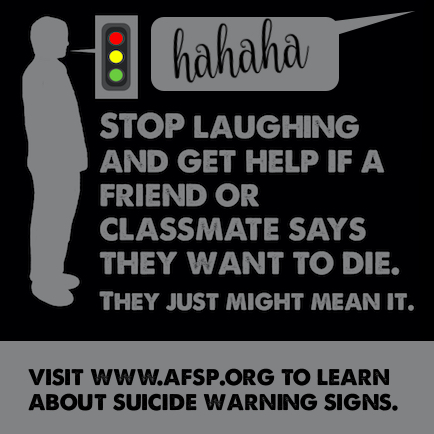Counterproductive conversation: Misusing vocab of mental illness undermines true meaning
December 14, 2016
For many teens, depression is a broad term – one that covers everything from inconveniences of being a student to the disease that is the leading cause of suicide in the United States.
The reality of depression is that it is not just feeling down, or being upset, or being overwhelmed when you get a bad grade. This reductionist thinking completely disrespects and disregards the severity of the illness.

Photo by Hannah Tucker.
“It’s a strange poverty of the English language, and indeed of many other languages, that we use this same word, depression, to describe how a kid feels when it rains on his birthday, and to describe how somebody feels the minute before they commit suicide,” said Andy Puddicombe in his TED Talk, Headspace.
Clinical depression is a chemical imbalance in the brain. It is a diagnosable disease that can last for years even when treated by medication or therapy. It kills thousands of Americans each year, and can keep those living with it constrained to a bed. And while it is different in effect and visibility, clinical depression is as much a disease as diabetes. So unless you also diagnose yourself with diabetes on a daily basis, you should not be labeling yourself with an undiagnosed mental illness.
“It probably makes them feel even worse because they feel like their illness is being made into a joke,” CHS junior Maggie Lazaroski said, “But I also think that it’s so ingrained into [culture] that people don’t really take a second look at it, which also demerits the plea of the people who are depressed because it’s always been made a joke, so their issues aren’t taken as seriously.”

“I want to die”, “this made me depressed,” and other comments have become common on social media and in day to day conversation. The constant use makes it difficult to know who really means it or who is just feeling down.
There should be immediate and considerable concern when someone says they want to kill themselves, but because of the broad definition that people give to the vocabulary of mental illness, intent is near impossible to separate from humorous comments.
Being transparent about symptoms with friends and family is increasingly difficult as cries for help are mixed with status updates posted for likes. Shoulders one might hope to lean on are shaking with laughter as they mistake a confession with a quirky comment.
And while the flow of conversation is constant, it is counterproductive. Instead of finding solace, it buries the help people need. Instead of concerning conversation being a red light, a symptom, a sign, it is, instead, a joke. Rather than emphasising the importance of further studies on treatment, it belittles a lifelong struggle.
The vocabulary of mental illness should be used with the weight it puts onto those who endure it. It is only with that weight on our tongue that we can begin to pull it from the shoulders of others.
Follow Amelia @ameliavanyo